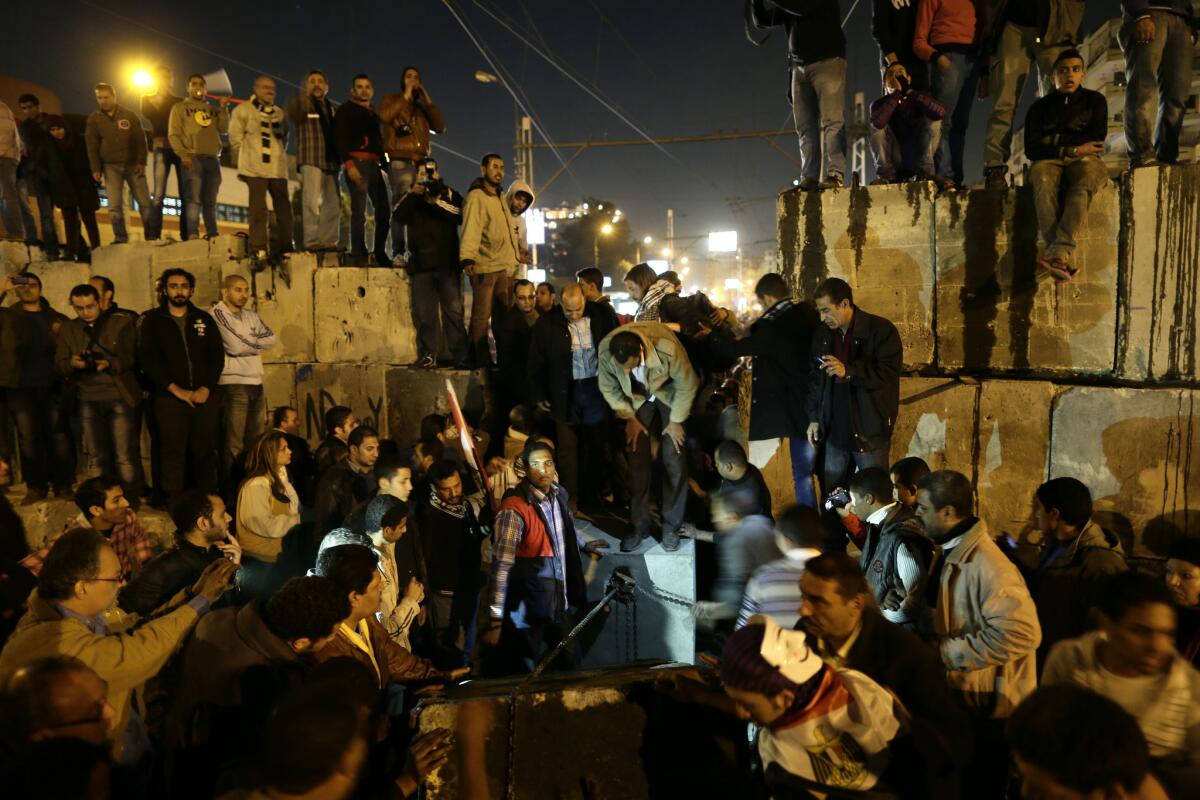Egypt’s constitutional crisis

- Share via
A vote by millions of Egyptians on a new constitution should have been an occasion for national celebration. But overreaching by Islamists, including the country’s president, has made the referendum that begins Saturday a source of division. Even if the document is approved, President Mohamed Morsi will need to reach out to Egyptians — including Christians, secularists and women — who feel they have been excluded from a revolution they helped create. Yes, Morsi was legitimately elected, but that doesn’t relieve him of the responsibility to preside over an inclusive government.
The proposed constitution was approved two weeks ago by an Islamist-dominated constituent assembly. Its preamble describes it as “the document of the 25th of January revolution, which was started by our youth, embraced by our people, supported by our armed forces.” But many of the Egyptians who thronged Tahrir Square to demand the ouster of the autocratic Hosni Mubarak are suspicious of the document because of both its contents and the circumstances of its creation.
Two controversial aspects hark back to the Mubarak-era constitution: its declaration that legislation is to be informed by the principles of Islamic law, and its paternalistic references to women, such as, “The state shall … enable the reconciliation between the duties of a woman toward her family and her work.” Although it says, “All citizens are equal before the law,” it doesn’t specify that women have equal rights with men.
The constitution guarantees freedom of worship, but only for the “divine religions” — a reference to Islam, Christianity and Judaism. It also contains a blasphemy provision prohibiting “insult or abuse of all religious messengers and prophets.” These provisions have been criticized by international human rights activists.
It isn’t just the wording of these provisions that worry critics. It’s that they were incubated in a process dominated by Islamists and will be interpreted by an Islamist-dominated parliament and an Islamist president who has engaged in a succession of power grabs, including a decree (from which he has recently retreated) placing his actions beyond judicial review. Resentment has led to street fighting during the last few days, including attacks on Muslim Brotherhood offices, followed by attacks on anti-Morsi protesters.
Critics of the constitution are divided over whether to campaign aggressively for a “no” vote or urge a boycott of the referendum. That disarray makes it likely that a flawed constitution will be approved by a misleadingly lopsided majority. But Morsi should temper any exultation at such a result with the realization that a prosperous and internationally respected Egypt will have to be not only democratic but tolerant and law-abiding. Anything less will be a betrayal of the broad-based revolution celebrated in the constitution.
More to Read
A cure for the common opinion
Get thought-provoking perspectives with our weekly newsletter.
You may occasionally receive promotional content from the Los Angeles Times.









